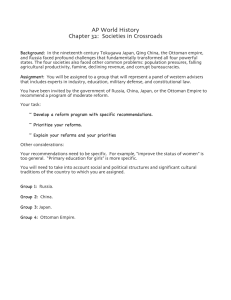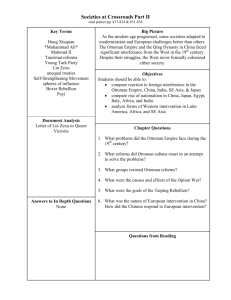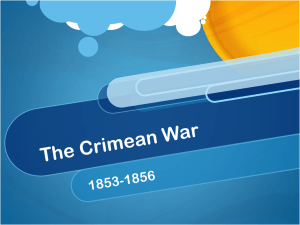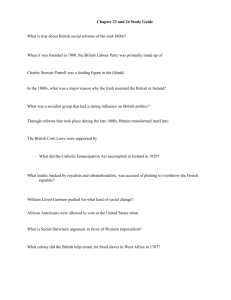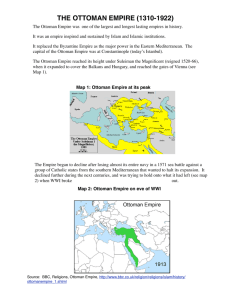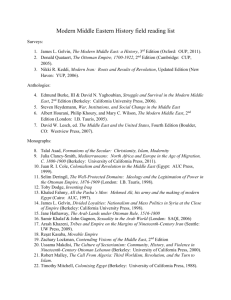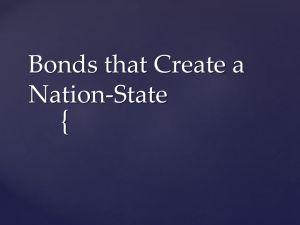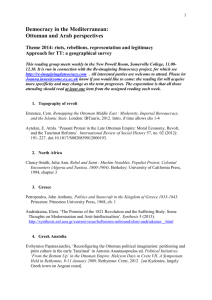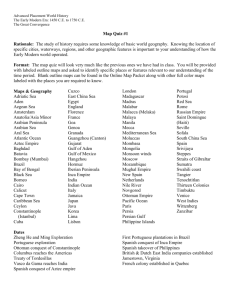Religious Diversity and the Ottoman Empire
advertisement
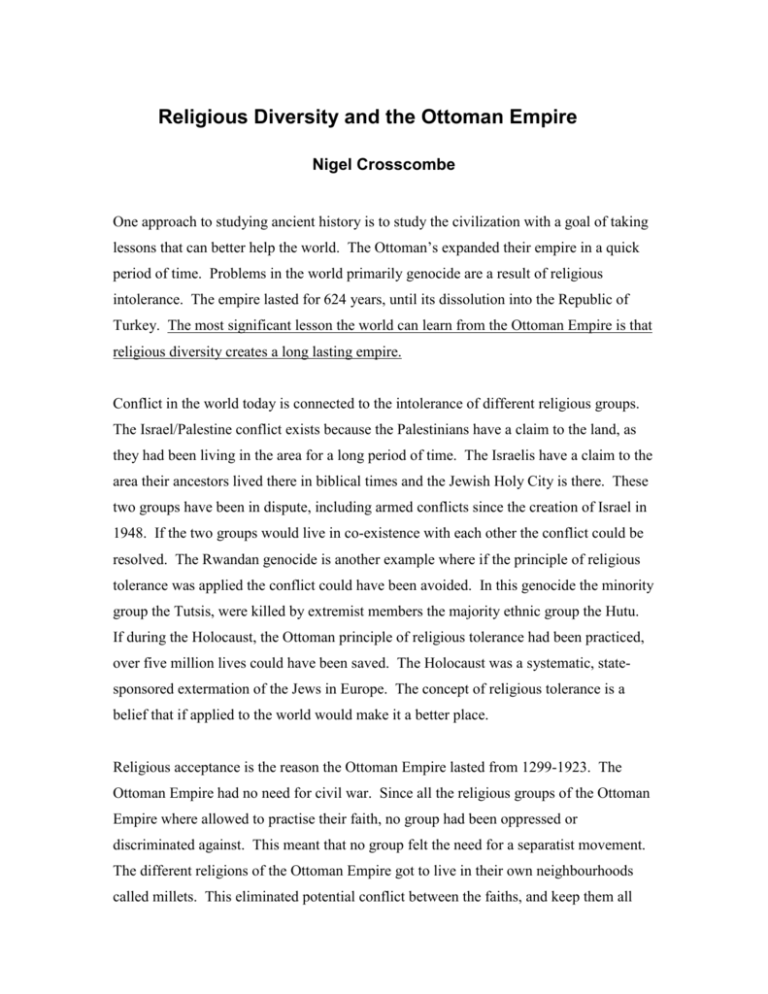
Religious Diversity and the Ottoman Empire Nigel Crosscombe One approach to studying ancient history is to study the civilization with a goal of taking lessons that can better help the world. The Ottoman’s expanded their empire in a quick period of time. Problems in the world primarily genocide are a result of religious intolerance. The empire lasted for 624 years, until its dissolution into the Republic of Turkey. The most significant lesson the world can learn from the Ottoman Empire is that religious diversity creates a long lasting empire. Conflict in the world today is connected to the intolerance of different religious groups. The Israel/Palestine conflict exists because the Palestinians have a claim to the land, as they had been living in the area for a long period of time. The Israelis have a claim to the area their ancestors lived there in biblical times and the Jewish Holy City is there. These two groups have been in dispute, including armed conflicts since the creation of Israel in 1948. If the two groups would live in co-existence with each other the conflict could be resolved. The Rwandan genocide is another example where if the principle of religious tolerance was applied the conflict could have been avoided. In this genocide the minority group the Tutsis, were killed by extremist members the majority ethnic group the Hutu. If during the Holocaust, the Ottoman principle of religious tolerance had been practiced, over five million lives could have been saved. The Holocaust was a systematic, statesponsored extermation of the Jews in Europe. The concept of religious tolerance is a belief that if applied to the world would make it a better place. Religious acceptance is the reason the Ottoman Empire lasted from 1299-1923. The Ottoman Empire had no need for civil war. Since all the religious groups of the Ottoman Empire where allowed to practise their faith, no group had been oppressed or discriminated against. This meant that no group felt the need for a separatist movement. The different religions of the Ottoman Empire got to live in their own neighbourhoods called millets. This eliminated potential conflict between the faiths, and keep them all under one flag. The Ottoman Empire created a system in which each millets leader got to represent its members before the Sultan. This allowed the needs of all the population to be addressed, which allowed the empire to prosper. The Ottoman Empire lasted a long time due to religious tolerance. The Ottoman Empire’s quick rise to control lands in Europe, Asia, and Africa is attributed to their tolerance of different religions. The Devshirme system created a powerful military force unit, called a Janissary. This system took Christian youths from the Balkans, and trained them to create their own military army, which became the most powerful Ottoman fighting soldier. The Ottoman Empire would not have gained as much territory if not for its strong army. The Ottoman Empire in 1492, made a point of accepting all Jewish refuges that had been expelled from Spain. This acceptance created a large sense of nationalism in the Jewish refuges, who went on to enlist in the Ottoman army. This increased the size of the army and allowed the Empire to expand faster. The Ottoman Empire had in their empire the three holy cities from the world’s largest faiths. In the early 1500’s the Ottoman Empire conquered Mecca, Medina and Jerusalem. This confirmed the empire as a multi-religious state. The Ottoman Empire allowed people to pilgrimage to their faiths holy city and which were in Ottoman territory. It also allowed other regions to join the Ottomans in their new religious empire. The Ottomans could not have had as quick period of expansion, if it wasn’t for its religious policies. The most significant lesson the world today can learn from the Ottoman Empire is that religious diversity creates a long lasting empire. This is shown in the Ottoman’s quick rise to developing its empire, the problems in the world today, and is the reason the empire lasted for 624 years, until its dissolution into the republic of Turkey. If the world could adopt this concept it would end almost all of the worlds armed conflicts.

